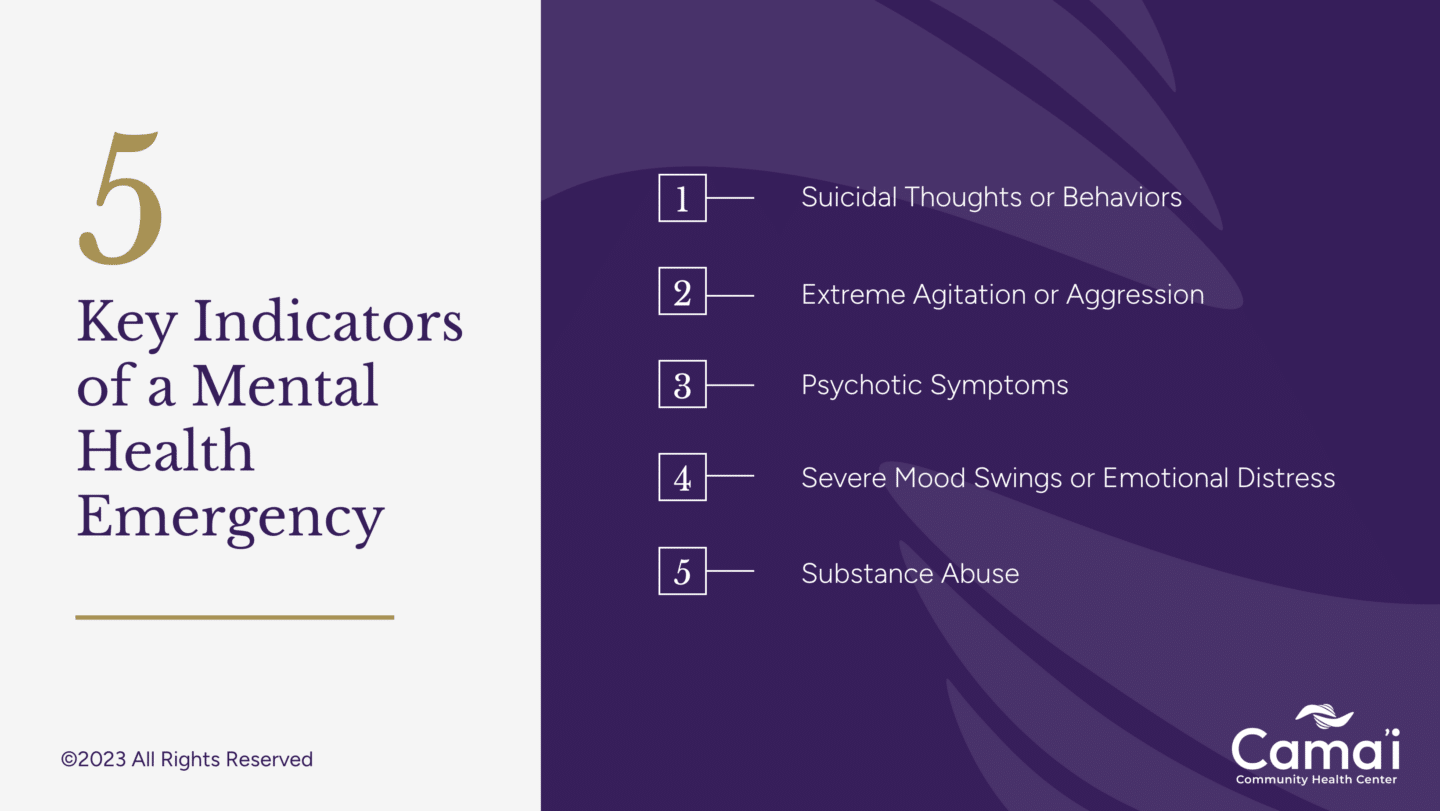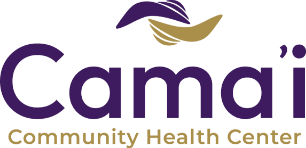It’s no secret that the United States has been experiencing a mental health crisis in recent years — between the rise of the COVID-19 pandemic which heightened isolation to the stigma surrounding seeking medical attention for mental health issues.
At the end of the day, mental health is a critical aspect of our overall well-being, and just like physical health, it can sometimes require emergency attention. While mental health concerns often benefit from ongoing support and treatment, there are instances when immediate intervention becomes crucial. Recognizing a mental health emergency and knowing when to seek emergency mental health services can potentially save lives and prevent further harm.
In this blog post, we will explore key signs and situations that warrant prompt action and the steps you can take to ensure the well-being of yourself or a loved one.
Are you or a loved one in need of mental health support? Reach out to Cama’i Community Health Center today and talk to a behavioral health expert.
5 Indications of a Mental Health Emergency

A mental health emergency refers to a situation in which an individual’s mental health condition or crisis requires immediate attention and intervention to ensure their safety and well-being. It involves severe symptoms, behaviors, or circumstances that pose an immediate risk to the person experiencing them or others around them.
Loss of touch with reality, intense panic or anxiety, and inability to care for oneself or engage in daily activities are all signs that you should seek immediate help. Mental health emergencies are also situations where professional help and intervention may be necessary to address the immediate crisis effectively.
The following includes examples of possible mental health emergencies:
- Suicidal Thoughts or Behaviors
One of the most urgent mental health emergencies involves suicidal thoughts or behaviors. If you or someone you know expresses a desire to end their life, talks about suicide, or exhibits risky behaviors such as self-harm, it is essential to take these signs seriously. It’s also important to know a few crisis hotlines. For example, you can contact a suicide crisis lifeline, such as the National Suicide Prevention Lifeline (988), or seek immediate assistance from local emergency services. - Extreme Agitation or Aggression
Uncontrollable agitation, aggression, or violent behavior can be indicators of a mental health emergency. If an individual poses a threat to themselves or others, it is crucial to prioritize safety. Remove yourself and others from the immediate environment, if possible, and reach out to emergency services or the appropriate crisis hotline for guidance. - Psychotic Symptoms
Psychotic symptoms, including hallucinations (seeing or hearing things that others don’t) and delusions (believing in things that are not based in reality), can significantly impact a person’s perception of the world and their ability to function safely. If someone is experiencing severe or distressing psychotic symptoms, it is essential to seek immediate professional help. - Severe Mood Swings or Emotional Distress
Intense and sudden shifts in mood, particularly if accompanied by severe emotional distress, can indicate a mental health emergency. This may include prolonged episodes of uncontrollable crying, overwhelming feelings of sadness or hopelessness, or heightened anxiety or panic attacks that interfere with daily functioning. Reach out to a mental health crisis line or emergency services to ensure timely support and evaluation. - Substance Abuse
Substance abuse can lead to acute mental health emergencies, especially during episodes of overdose, severe intoxication, or withdrawal. You should also note that substance abuse can lead to (or worsen) symptoms of depression and anxiety. If someone is experiencing extreme symptoms related to drug or alcohol use, it is critical to seek immediate medical attention.
Mental Health Crisis Services at Cama’i Community Health Center
A deterioration in mental health can happen for a variety of reasons and without much warning. From dealing with human-caused disasters to daily anxiety that has become too much to bear, crisis counseling can help you cope with many situations that may be affecting your mental health.
Here at Cama’i, we offer primary care services as well as behavioral health services along with additional resources that can be great assets when dealing with mental health challenges. In addition, insurance typically covers the cost of our behavioral health health services — though you’ll want to check with your insurance provider to learn what exactly is covered.
Counseling Services
At Cama’i CHC, we offer counseling services for various behavioral health concerns such as depression, anxiety, PTSD, addiction, ADHD, grief, trauma, and more. And our talk therapy sessions aim to provide you with a safe space to express yourself, understand your emotions, acquire valuable skills, and adopt healthy coping strategies.
Counseling for Children & Teens
At Cama’i, we offer comprehensive behavioral health and other services for individuals of all ages. If you notice signs of depression, anxiety, behavioral challenges, or academic difficulties in your child, our counseling services can provide the necessary support. Don’t hesitate to reach out and ensure your child receives the assistance they require.
Psychiatric Care Referrals
In your behavioral health treatment plan, psychiatric medication can play a valuable role. When used in conjunction with talk therapy, medication has the potential to be highly beneficial. Your counselor will assess your situation and engage in a discussion about whether medication could be advantageous for you. If appropriate, they can refer you to a psychiatrist who specializes in this area.
Mental Health Emergency Support
If you or a loved one are currently facing a mental health crisis, Cama’i is here to support you on your journey toward healing and recovery. In the case of suicidal thoughts or intentions, please reach out immediately for assistance by calling the National Suicide Prevention Lifeline at 988. They are available to provide you with immediate help and support.
Mental Health Screenings
By undergoing mental health screenings at Cama’i CHC, you and your child have the opportunity to be assessed for symptoms of behavioral health disorders and determine if treatment would be beneficial. Our screenings cover a range of conditions including depression, anxiety, PTSD, ADHD, and more. Take the first step towards understanding your mental well-being and explore the possibility of receiving the support you may need.
Social Emotional Learning (SEL)
Social-emotional learning (SEL) is a behavioral health approach designed to enhance individuals’ comprehension and regulation of their emotions. It also emphasizes the development of students’ social and interpersonal skills, empowering them to make thoughtful and responsible choices in their lives. By incorporating social-emotional learning into education and personal growth, individuals can foster a deeper understanding of themselves and cultivate healthier relationships with others.
Trust Cama’i With Your Mental Health Needs
If you or someone you know is experiencing any of these signs mentioned in this post, it’s important to reach out for help promptly or contact emergency services to ensure appropriate support and assistance.
At Cama’i, we serve residents in our remote community. And we understand how isolation and loneliness can become challenges that test your mental health on a daily basis. But you don’t have to endure this type of situation alone with access to our services.
When you come to Cama’i for your behavioral health needs, you’ll have confidential assessment and treatment. And you won’t be left out in the cold during your time of need.
Are you or your loved ones in need of mental health services? Contact Cama’i Community Health Center today and speak with a behavioral health expert.


